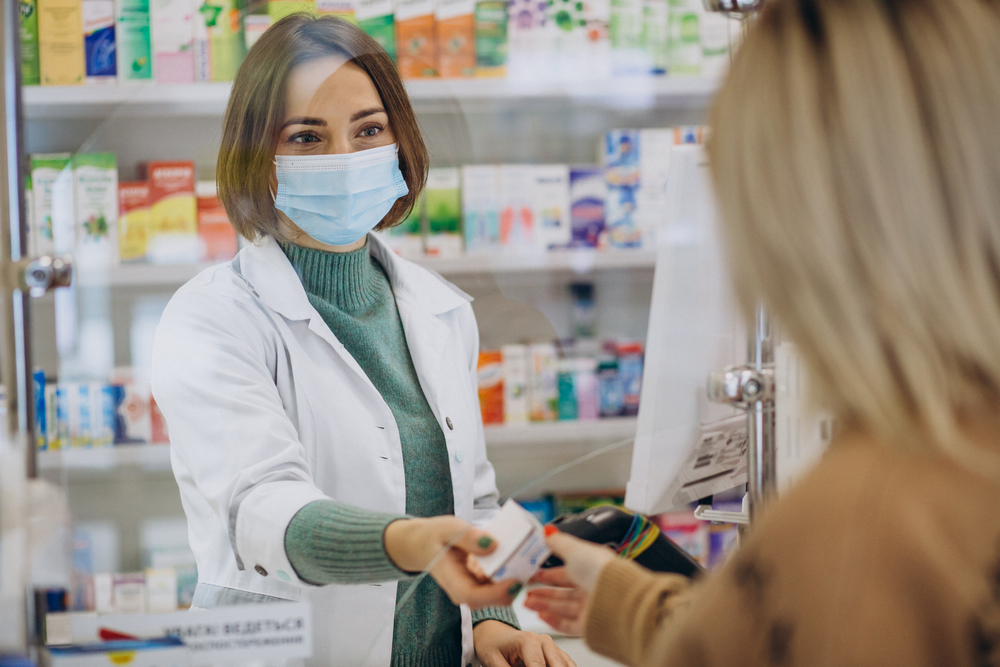Medical vs. pharmacy benefit: Answers to 5 common T1D questions
Trying to make heads or tails between the medical vs. pharmacy benefit within a health insurance plan can be puzzling. Diabetes care uses various benefit components of health insurance programs, and not all of them are easy to navigate at first.
Learning how health insurance works can build your confidence in managing day-to-day diabetes care. For instance, figuring out what pays for what can initially be confusing — but become almost like a reflex after a few experiences. It's normal to have a list of questions as you find your way!
These answers to five common questions people with type 1 diabetes (T1D) often ask will help you understand how medical and pharmacy benefits work together. Gain peace of mind by knowing how to receive the best medical care and worry-free access to prescriptions and diabetes supplies.
1. What's an easy way to understand the medical vs. pharmacy benefit?
When thinking about how health insurance covers the costs of diabetes care, the reason for care and the type of service can be a helpful guide.
Medical benefits reimburse meetings with a doctor or medical care provider at a hospital, doctor's office, or treatment center. For example, if you go to the doctor, have a hospital stay, or go to a free-standing medical clinic, these are considered medical benefits.
Medical benefits depend on your insurance plan and usually include deductibles and co-pays. These benefits can be used for equipment and supplies, including diabetes devices such as insulin pumps and continuous glucose monitors (CGMs).
When you pick up prescriptions and supplies at the pharmacy, the pharmacy benefit applies. There may be a flat co-pay for pharmacy benefits based on your insurance plan.
Fortunately, you can access diabetes supplies and equipment online at edgepark.com through both benefits, making it easier and faster to obtain the products you need.
As a patient, it is in your best interest to explore your health insurance coverage and how each benefit covers medical care and supplies. Many insurance companies have information available on their websites, so consider spending a few minutes doing some research.
When in doubt about any aspects concerning the medical or pharmacy benefits, be sure to call your insurance provider. Your Edgepark customer service representative can also help you navigate your insurance coverage. Also, ask whether you have a flexible spending account (FSA) or health savings account (HSA) — depending on your health plan's deductible, you may have access to an FSA or HSA to pay for expenses not reimbursed by insurance.
2. Why does my doctor write prescription orders for items that the pharmacy may not be able to fill?
Your doctor may or may not have access to the online list of approved medications for your insurance provider. Occasionally, a doctor may write a prescription that's denied by the insurance company. This happens when the drug isn't on the approved formulary list.
In these situations, take control. Call your insurance company or an Edgepark customer service representative before leaving the doctor's office to confirm the medication is approved. If not, your insurance company can offer an alternative, and you can ask your doctor to write a replacement prescription. Making this phone call ensures that your prescriptions will be filled without delays.
3. I'm having trouble managing my blood sugar and insulin. Who can best help me?
According to the Centers for Disease Control and Prevention, pharmacists play a key role in diabetes self-management education. Pharmacists often work with physicians to manage T1D care. The best way to have your health insurance plan reimburse for medication management is to work with your doctor's office to identify a strategy for care coordination and who should be on the team.
Care coordination means that your doctor and the medical office staff — which may include a Certified Diabetes Care and Education Specialist— will coordinate with your pharmacist. This team can help you manage medications and prevent and resolve medication-related concerns, allowing you to get the most out of your pharmacy benefit.
In recent years, diabetes management devices like insulin pumps and CGMs have advanced considerably, helping individuals take more control over their health and daily numbers. If you don't already use these technologies, consider asking your doctor about your eligibility during your next visit.
Additionally, Edgepark can act as a resource. We service both medical and pharmacy benefits and regularly offer customers assistance with making sure they get the help that they need to receive supplies on time. For instance, our ContinuCare program offers routine reminders and additional support to reduce waiting times and worries.
4. What should I do if I run out of insulin and it's too early to fill my prescription?
If you're planning ahead and know that you'll run out of medication on a certain date, there are two options: You can contact your doctor's office to ask if a new short-term prescription can be written and sent to your pharmacy. Or, if you can't reach your doctor's office, try contacting your pharmacist to see if they can provide an emergency supply of insulin.
In some states, a provision called Kevin's Law allows pharmacists to write emergency prescriptions for insulin, as Diabetic Nation explained. The other alternative — if a need is urgent — is to seek immediate treatment at the nearest emergency room under the medical care benefit.
5. I'm interested in a CGM and insulin pump, but insurance rejected my claim. What should I do now?
Depending on your health insurance, obtaining approval for a CGM or insulin pump can be a process. Before making the request, confirm if the devices are typically approved by your health insurance company. Make a point to inquire under which benefit — pharmacy or medical — and ask about the information that needs to be submitted by your doctor. This type of equipment is considered durable medical equipment, and prior authorization and additional clinical documentation may be necessary.
This may involve your doctor completing a prior authorization (PA), which will include evidence of medical necessity for an insulin pump or CGM: the frequency of testing needed or your hemoglobin A1C levels. In addition, for some types of pumps, insurance companies may require that individuals first use a pump without an advanced feature for a period of time before switching to the more complex features that certain pumps on the market offer. In this case, your doctor may need to provide details of your previous pump experience prior to receiving coverage.
Also, keep in mind that Edgepark services both the medical and pharmacy benefits. If you encounter any issues getting your claim approved, you may still be able to qualify for coverage through a different channel. If you are denied coverage, don't lose hope! Follow up right away and don't be afraid to ask questions.
If you ultimately learn that coverage for a CGM and/or insulin pump are not covered by your insurance, you can look into other payment options (such as FSAs, HSAs, and manufacturer discounts). There are often alternative ways to afford important diabetes equipment — even if you don't have insurance coverage, you may still be able to secure the devices you need. Contact the Edgepark customer service team to learn about potential opportunities.
Managing the medical vs. pharmacy benefit for T1D care can be complex but Edgepark can help. Create a team with your doctor's office and Edgepark to access the medical care, prescriptions, and supplies you need to manage day-to-day care.
Looking for additional information around managing your diabetes? Check out the full library of articles on the Edgepark Health Insights blog.



